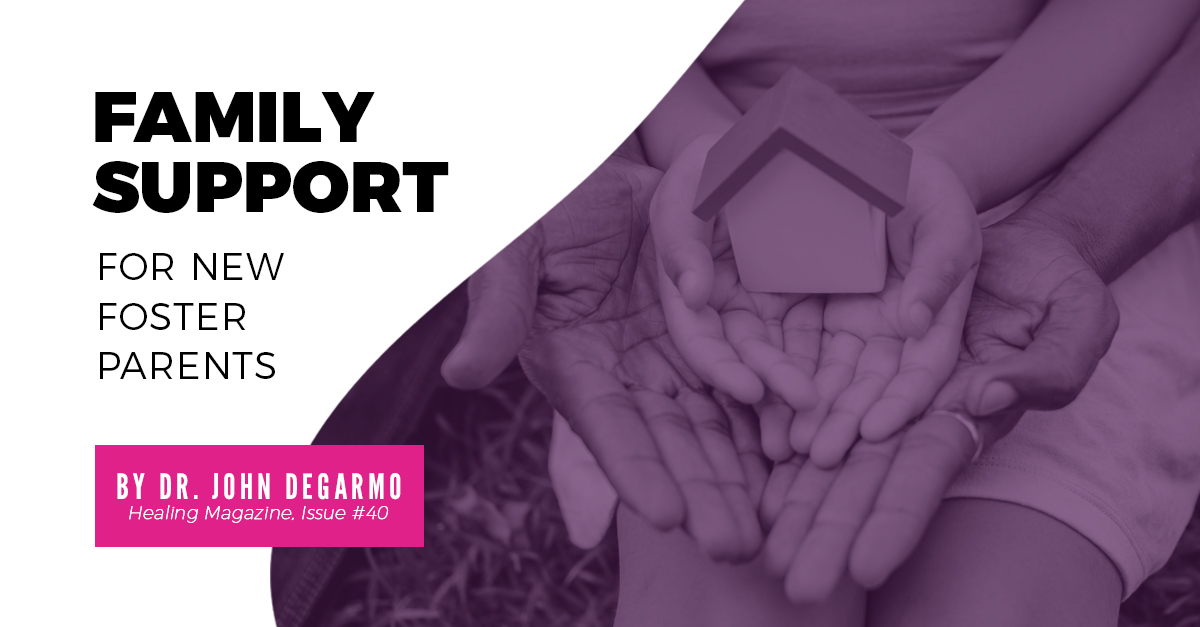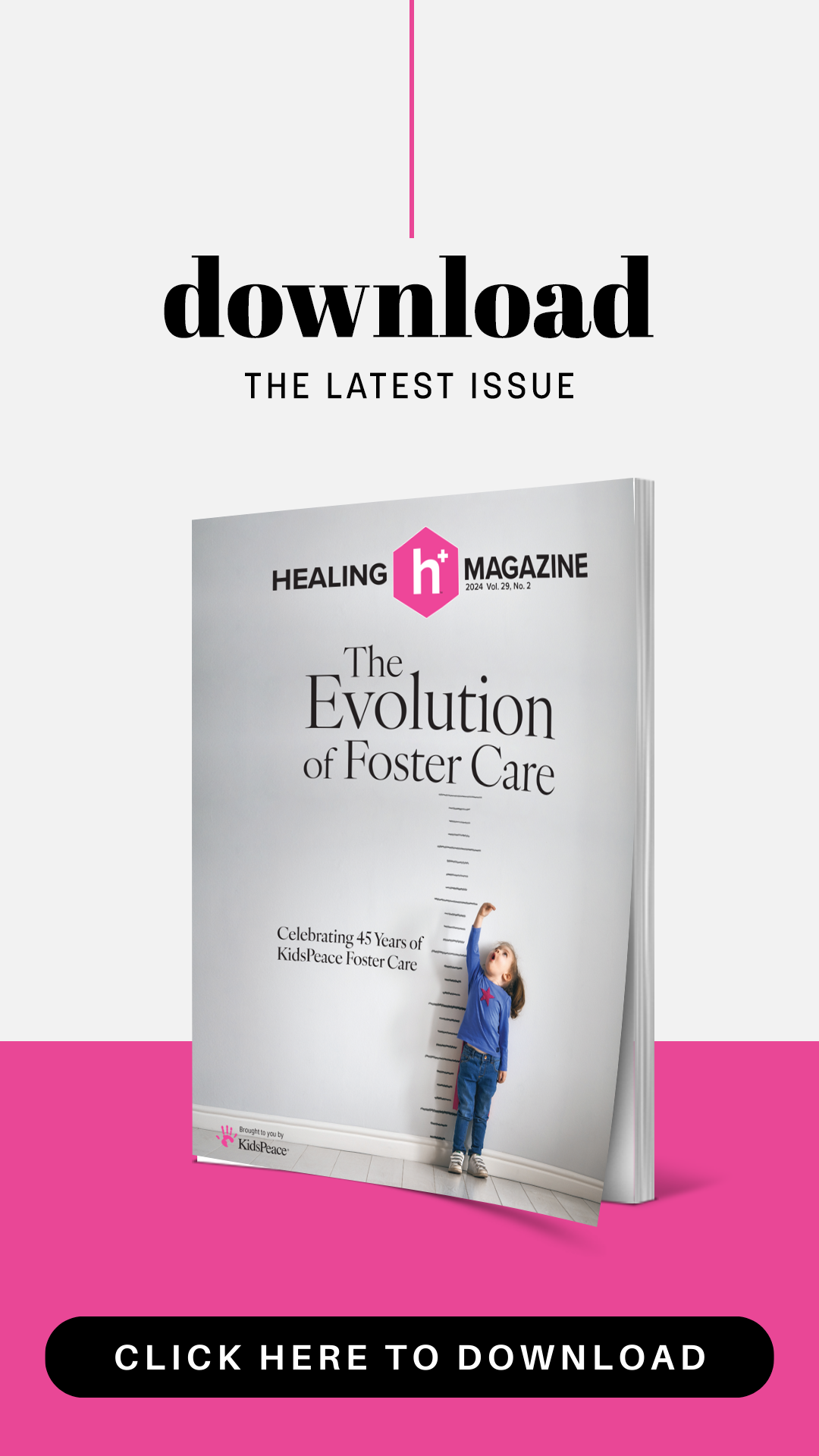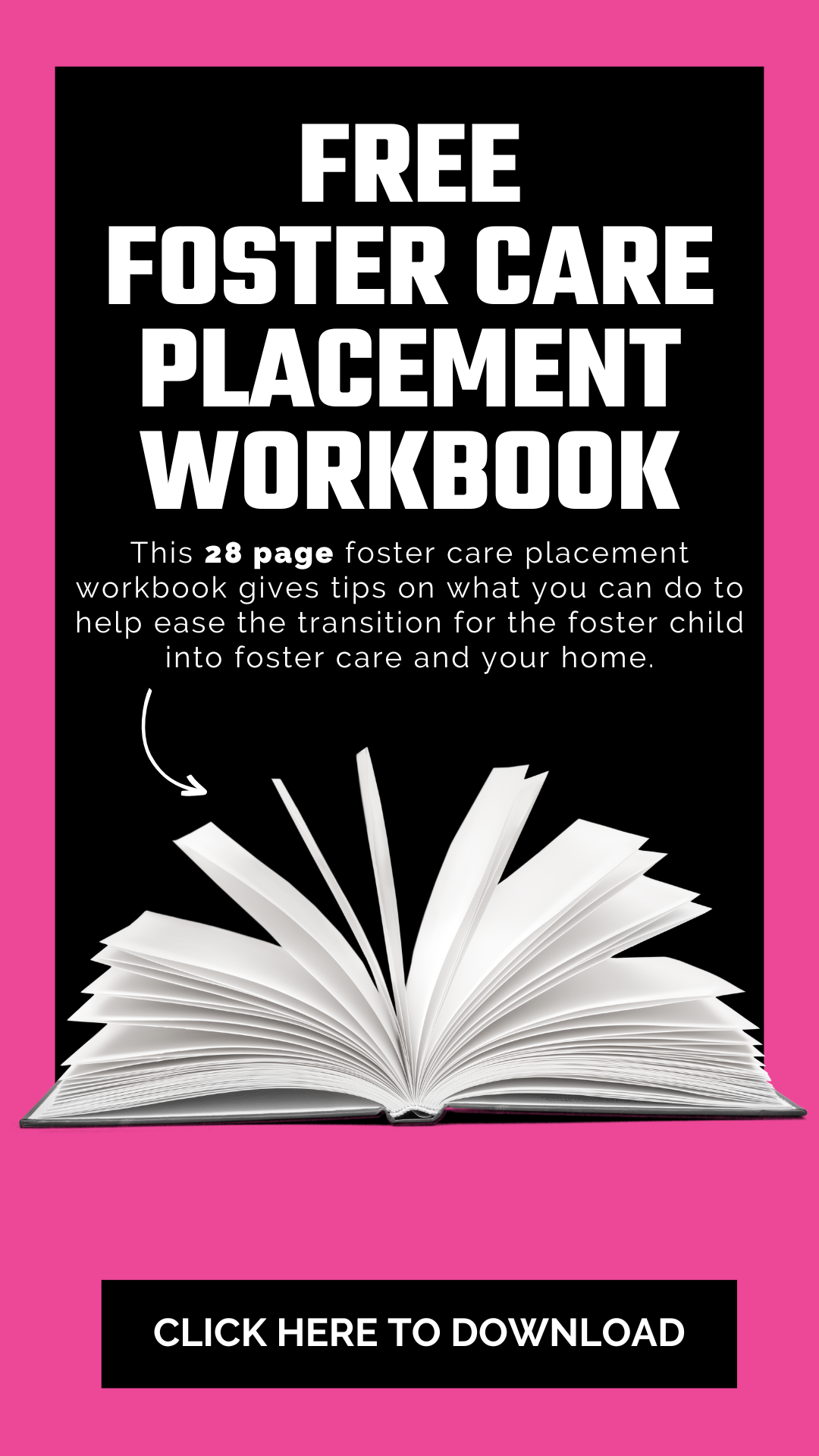
Your family member has decided to become a foster parent and to care for children from foster care in their home. Let me share something with you; they will need your support, and perhaps more importantly, your understanding.
Like so much of society, I had misconceptions about why a child might be in foster care. Growing up, I had heard whispers that “those foster kids” were somehow at fault, were often “bad kids” and were “troublemakers.” Now, as I have had the privilege of caring for over 50 children in my home, I can boldly assure you that these children are not at fault. Instead, they are victims. They are victims of abuse and from neglect. They are children who want to lead a normal life, who want to play and laugh with other children their age.
Quite simply, they need someone to love them.
Foster care is available for any child from birth until 18 years of age. When a child reaches 18, most will exit the foster system. The average age of a child in custody is 10.2 years. Of all children in foster care, 47% of these are in their teens. When a child is placed in custody under foster care, and into your foster home, the intention is for the child to eventually be reunited with his/her birth family. Roughly six out of every ten children placed in foster care are reunited with birth parents or family members.
Children are placed under foster care for a number of reasons. Many of these reasons overlap, with the child suffering from numerous mental and emotional challenges. These reasons may include one or more of the following reasons.
- Neglect
- Physical abuse
- Sexual abuse
- Parental drug/alcohol abuse
- Child drug/alcohol abuse
- Domestic violence
- Inadequate housing
- Incarceration
- Death
- Abandonment
Placement in the foster care system takes many forms. Some children may live with foster parents unrelated to them, while other children may live with relatives temporarily or with family members intent upon adopting the child. Over 2 million children live with family members outside of the foster care system, such as group homes or with family. Still, other foster children may reside within groups or residential treatment, or even an intensive form known as Treatment Foster Care, which provides therapeutic treatment services.
Foster parents will often find themselves exhausted, both mentally and physically, and feel drained. There is very little money available to help them, and often times, they will not be reimbursed for all the money they spend on their foster child. The job will require them to work 24 hours a day, 7 days a week, with no time off. Indeed, foster parents will probably feel overworked and underappreciated. They will work with children who are most likely coming from difficult and harmful environments. Some of these children will have health issues, some will come with behavioral issues, and some will struggle with learning disabilities. Many times, the children who live in their homes will try their patience, and leave them with headaches, frustrations, disappointments, and even heartbreaks. There is a reason why many people are not foster parents, as it is often too difficult. The turnover rate for foster parents in the United States is between 30% and 50% each year.
Now, if truth were to be told, being a foster parent has been the most difficult “job” I have ever had. But make no mistake: at the same time, it has also been the most rewarding thing I have ever done.
For those who have family members who are caring for children from foster care in their homes, it is important keep a few things in mind.
To begin with, when a child is placed into a foster care home, it is often a time of great anxiety and trauma. Your family’s child from foster care needs their help, their support, and most importantly, their unconditional love. As many of these children are coming from homes and environments where they have experienced abuse and neglect, as well as a host of other problems, they may be resistant to help, and to love. Do not be discouraged, as this is quite normal with foster children. Remember, they have been taken from their homes and their families, and are now living with strangers. No matter how poorly they have been treated, no matter how much abuse they have suffered, they still want to be with their family members, despite all of the abuse, trauma, and neglect they may have experienced. To be sure, this is a very scary time for them, as they most likely do not want to be in the home of your family members/their new foster parents. Even more so, the child will likely be overwhelmed with the situation, so it is important the home is as peaceful and quiet as possible. This is not a time for family members and friends to visit. Instead, allow your family and their child from foster care to have some personal space and alone time, as they learn to adjust to new and perhaps challenging family dynamics.
There are ways that you can help your family, though. To be sure, they will need help in some areas – a cooked meal; running errands; helping out at Christmas time and birthdays, donating to a foster parent fund; helping to pay for summer camps and field trips for foster children: these are just a few of the many ways that you can help a foster family in your own area as they care for the children in foster care in your home town. Without doubt, they will most likely appreciate and welcome your help and support, as you help to share the challenge of caring for children in need in their homes.
There are times when your family members will require a short break from their foster child. This break may be the result of foster parents traveling on vacation, a temporary move into a new home, or that the birth children in the foster home require some much needed time with their own parents. This break is often known as respite care. Respite care may also be used simply because some foster parents are trying to prevent burnout, and need a break from their foster child. Other foster parents are often used for respite, as they are officially licensed to look after foster children. In some parts of the nation, there are those foster care and child welfare agencies that allow others besides foster parents to care for foster children during times of respite.
Perhaps the most important way you can help is by simply understanding. You now have a new member of your family, someone who will need your love and your support. When a child from foster care comes into my family, and into my home, they become a part of my family and an important part of my home. In my house, there is no difference between one of my biological, adoptive and foster children. In truth, there are no labels. They are indeed all my children. Each child is loved with as much love and compassion as I can possibly give. I am like that mamma bear who fights for her cubs. I fight for my foster children with all that I have. It doesn’t always make me popular with the case workers. It doesn’t always make me popular with the birth parents, or the court systems. But that doesn’t matter: these are MY children, and I will fight with all I have to protect them. I will do all I can to make sure they are safe, they have all they need, and that they are loved.
For a foster child who may have been abused, beaten, or neglected, this type of love is most important. Without this type of love, a foster child will not form necessary and healthy attachment with others, resulting in a number of attachment disorders. Emotional difficulties such as a lack of self-worth, trust, and the need to be in control often result in the lack of unconditional and healthy parental love. As anyone who has worked with foster children will tell you, most foster children face an enormous amount of emotional issues, many times stemming from the lack of healthy love.
This article was published in the Fall/Winter 2017 edition of Healing Magazine, published by KidsPeace. To view the latest issue or back issues, or to subscribe to the magazine, please visit www.healingmagazine.org


